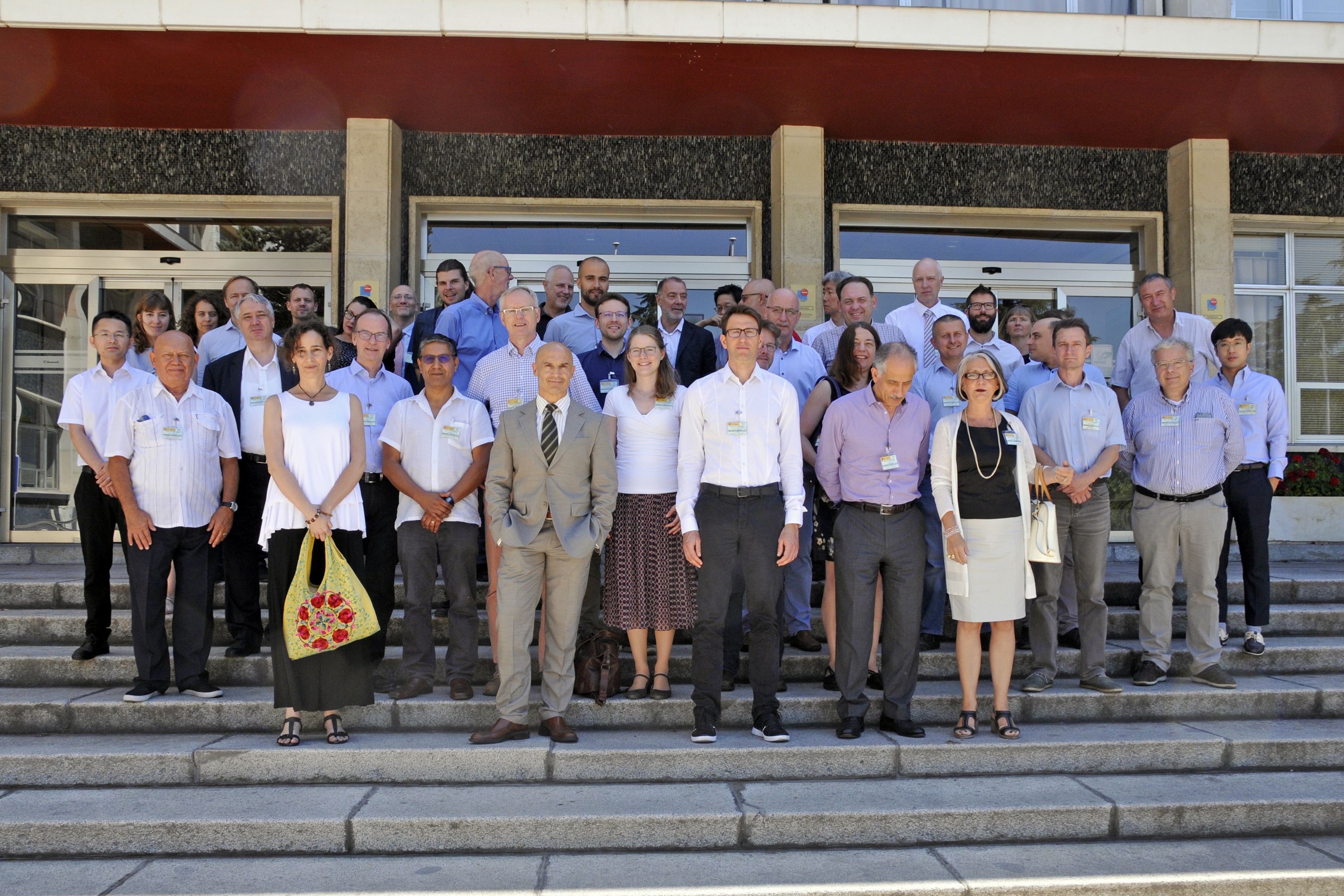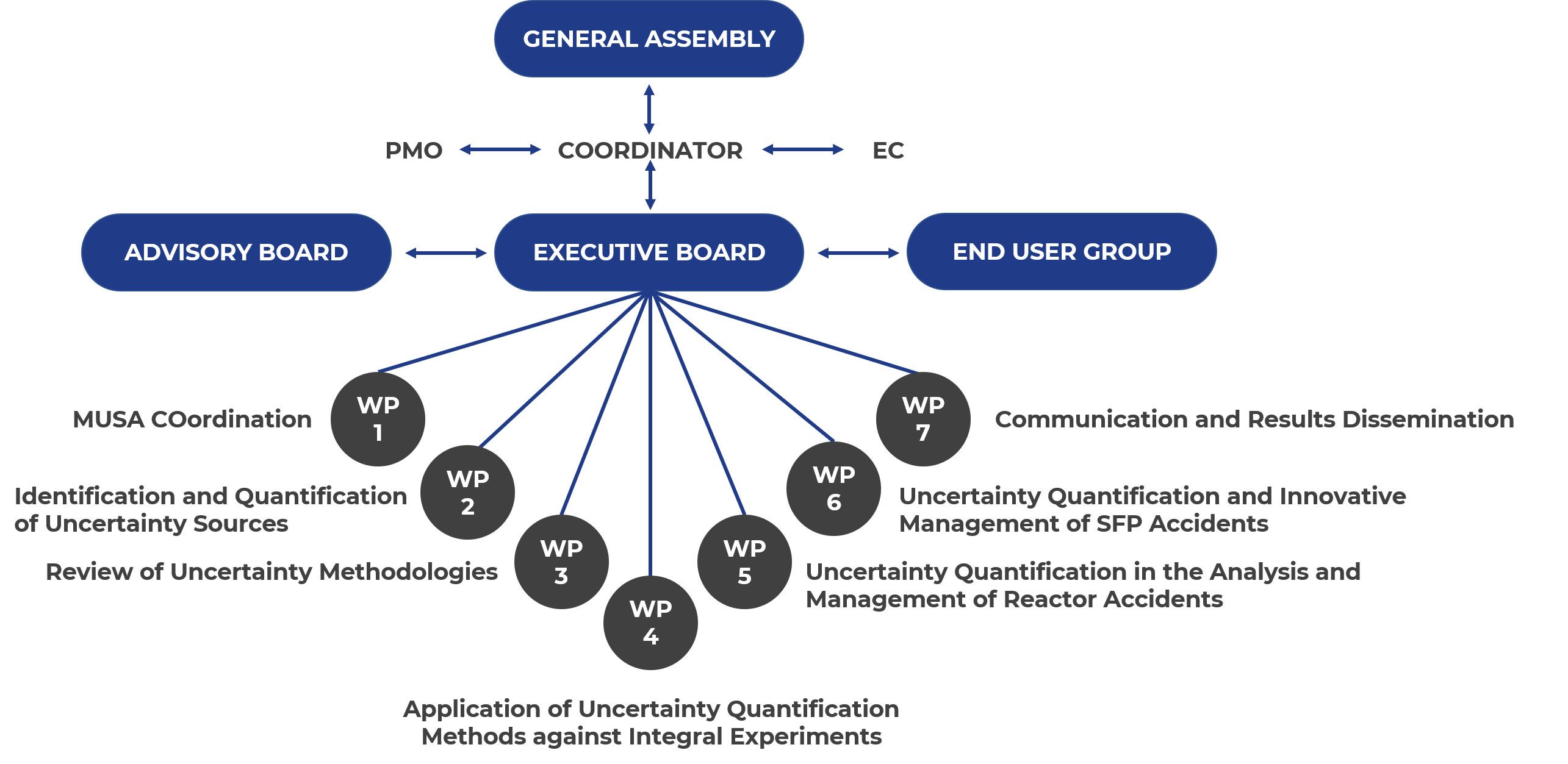
Officially launched in June 2019, the European Horizon 2020 MUSA project will last 48 months with a total budget of € 5 768 452,50. The project is coordinated by CIEMAT in Spain and gathers 29 partners and one associated partner from 16 countries worldwide.
In the current state of maturity of severe accident codes in terms of phenomena addressed and extensive validation conducted, the time has come to foster BEPU (Best Estimate Plus Uncertainties) application in the severe accident domain, and accident management.
The advantages with respect to deterministic analysis are known: avoid adopting conservative assumptions in the model and allow identifying safety margins, quantify likelihood of reaching specific values and, through the distribution variance provide insights into dominating uncertain parameters.The overall objective of the Management and Uncertainties of Severe Accident (MUSA) project is to assess the capability of severe accidents codes when modelling reactor and spent fuel pool accident scenarios of Gen II and III.
To do so uncertainty quantification methods are to be used, with emphasis on the effect of already-set and innovative accident management measures on accident unfolding, particularly those related to source term mitigation. Therefore, source term related figures of merit are to be used in the uncertainty quantification application. The MUSA project proposes an innovative research agenda in order to move forward the predictive capability of severe accidents analysis codes by combining them with the best available/improved uncertainty quantification tools and embedding accident management as an intrinsic aspect of severe accident analyses.
MUSA develops through key activities which also describe the main outcomes foreseen from the project:
- identification and quantification of uncertainty sources in severe accident analyses
- review and adaptation of uncertainty quantification methods
- and testing such methods against reactor and spent fuel pool accident analyses, including accident management
Given the focus of figures of merit on source term, the project will identify variables governing source term uncertainties that would be worth investigating further. All the ingredients necessary to conduct the project are already available: analytical tools, experimental data, postulated reactor and spent fuel pool scenarios and, technical and scientific competences.
Project structure
MUSA is organised in 7 workpackages, a Project Management Office that supports the Coordinator, an Advisory Board, an Executive Board and an End User group. It also interacts with the European Commission regularly.


